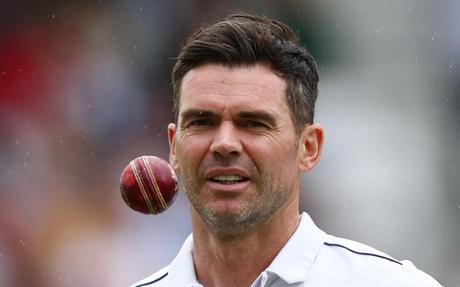
It could well be the best £4.50 James Anderson has spent. He has used the past six months to find out why his high standards fell to ashes last summer and decided, at the age of 41, that it is time to rethink his run.
To help with this, Anderson has used a public athletics track next to Manchester City's Emirates Stadium. He paid his dues at the door, like other runners, before doing speed drills that he thinks will help when approaching the crease.
Anderson took five wickets in four Tests and averaged 85 against Australia, rarely looking threatening. A combination of an injury early in the series, timed with some useless surfaces ("Kryptonite" he called them in his Telegraph Sports column) made him slow to start and never really recovered. With Stuart Broad leaving the big stage in grand style, this naturally led many to think Anderson should do the same, but he was determined to carry on, believing it was a one-off mistake.
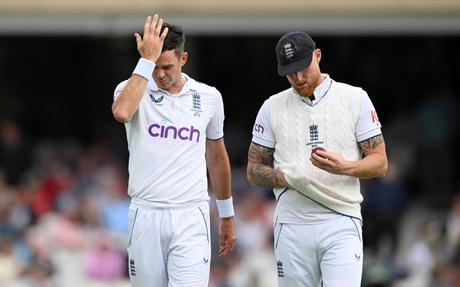
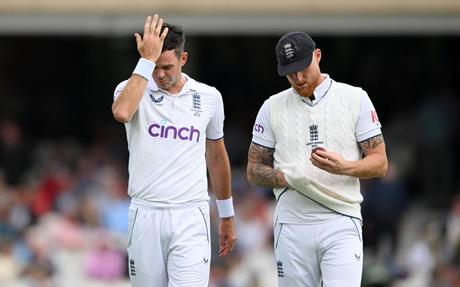
'I don't think I bowled badly in the Ashes, but I wasn't threatening'
He has not played competitively since the Oval Ashes Test and only picked up the ball again in October. Now he is back refreshed and ready to head to India for five Tests, where conditions will be even tougher for the seamers than anything they faced in the Ashes when the series begins in Hyderabad on January 25. To help himself, Anderson has decided that after 183 Tests, 690 wickets and more than 20 years in international cricket, he must reshape that most fundamental aspect of a bowler's technique: the run-up. The rest of us may not notice any noticeable change, but for him it feels different.
'I tried to look at the Ashes honestly. I don't think I bowled badly, but at the same time I didn't feel threatening," he says Telegraph Sports. "The ball didn't go around. The pitches weren't particularly suitable for me, but taking wickets when conditions aren't in my favor is something I've prided myself on in the past. India is a place where the conditions are not going to be in the seamers' favor, but I've been there before and had success, so I'm trying to combine all that and make sure I'm in a really good place.
The story continues
"My run-up is the most important thing, I'm just trying to make sure it's better. One thing that was wrong was my running speed. I can't rely on that fast twitch in the tuck that I've had over the years, so I've been working on my momentum leading up to gaining speed that way. That feels like it's working really well, the ball is coming out really well and I just have to transfer it out.
"Something that has worked well for me is varying workouts and making sure you don't do the same thing over and over again. I have to do things like working on running technique and speed a little more than most people now that I've reached that age. I need to cover every base to make sure I'm in a good place when I get to India.
'I don't see why I should stop just because of my age'
Broad's absence won't be hugely felt by Anderson, as his retirement was a gradual wind-down. Broad did not go to Pakistan last winter and both have alternated in recent years. However, it did put a spotlight on Anderson's future, and he was a little nervous about whether he would get another central contract. A one-year contract was offered and accepted.
"Sounds cruel, but you just have to move on," he says of Broad. "No thought has crossed my mind about the finish. A lot of people come up to me and congratulate me on a great career, but I keep having to explain that it was Stuart and not me.


"I still feel like I have a lot to offer this team. I wouldn't still be doing what I do if I didn't have that feeling. I still feel I have the skills to win English cricket matches, so as long as I feel that way I don't see why I should finish just because of my age. The training I did this winter makes me feel like age is just a number. Cricket is a numbers game and people will always look at my age when it appears on the screen when I come to bowl, but for me it is irrelevant. It's how you feel as a cricketer and I know I can still dive around the field and shift with the ball just like I have done for the last 20 years.
"I feel like the last five to six years have been the best of my career. Although the Ashes didn't go as well as I wanted, there have been many series where I haven't bowled well throughout my career and it's just a matter of working hard to make sure it doesn't happen again. "
'We might even open with two spinners in India'
The fields of India will challenge the Bazballers. Taking 20 wickets has been one of the key drivers of the Ben Stokes era. His field settings and innovative tactics will be put to the test when the fields are flat. If there is a miraculous spin that might just help England, who will see it as an equalizer for their spinners? The four players in the squad - Anderson, Mark Wood, Ollie Robinson and Gus Atkinson - will be rotated.
Wood and Atkinson provide shock tempo, Robinson and Anderson the reverse swing skills that can be crucial. It feels like they could be a bright spot in the side, with Stokes unable to bowl and three of the four knocking on age or prone to injury. The other, Atkinson, is an unknown quantity. There is no specialist bowling coach on this tour, and Brendon McCullum has often said why does the team need one when they have Anderson in the dressing room to pass on his experience?
"That has been my role in the recent past anyway, namely to step into that mentor role as a senior figure. I have a duty to pass on information to people. We have bowlers who have not bowled in India before so it will be a different challenge for them. We must help where we can.
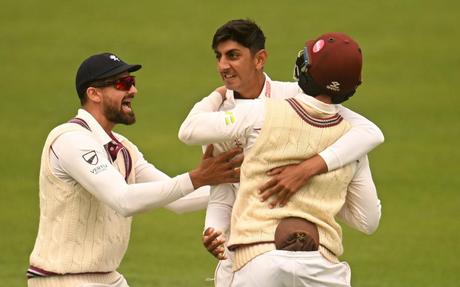
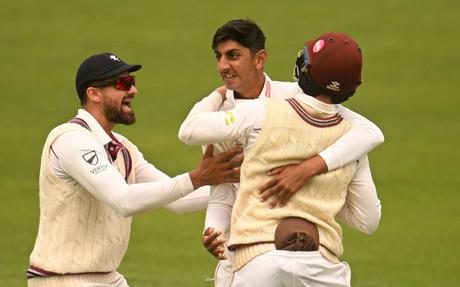
"There are only four seams batting, so we don't expect to bowl a huge amount of seams. It's just a slightly different role. You may not bowl the overs you do in England, but they are still important. It probably places more importance on spells you cast. These are the things we will pass on to the boys. Reverse swing will play a big role. It may happen that we do not open with a seam. We may open with two spinners. Your role then changes enormously, you end up in third or fourth place with regular batsmen in it. That's the challenge of playing in India.
Anderson's record in India is a good one: 39 wickets out of 29. He bowled an excellent spell of reverse swing to help win the first Test of the last tour, but became redundant on the rotating pitches that India were then preparing. This will be a tough tour, seven weeks in India, playing in some of the less fashionable venues and little preparation, with England choosing a week in Abu Dhabi over a warm-up against local opposition. A modern trend that will not change.
"I am more excited about this tour than previous tours to India. In the past it was a chore and we tried to get rid of it," he says. "We will aim to play the same way as the last two years, but we have to be smart about it. Something we've been trying to progress is playing that aggressive style, but learning what works in different circumstances. Nobody could stop us from winning 3-0 in Pakistan and we can take a lot of confidence from that. Conditions may be similar, not identical, but slow wickets for seamers and we have to be smart.
